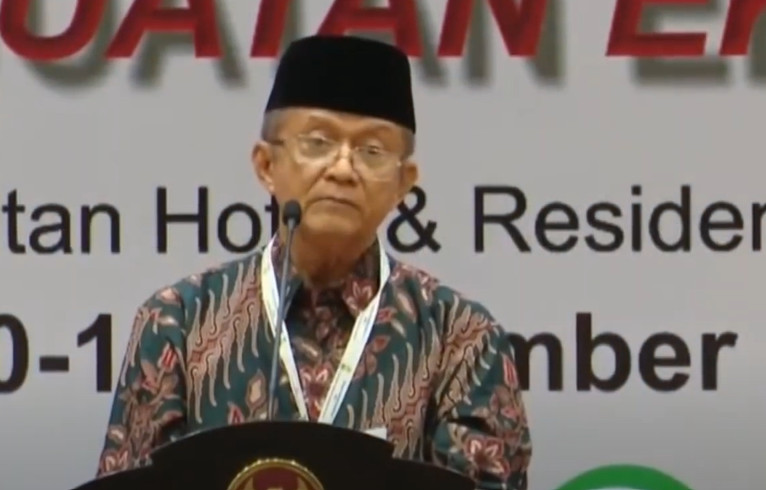The Indonesian Ulema Council, the nation’s leading Islamic body, has hit out at a lawmaker’s suggestion that Jakarta should legalize casinos.
On May 12, Galih Kartasasmita, a lawmaker for the Golkar Party, noted that the UAE—an Arab nation—is currently looking to open its first legal casino.
Earlier this year, UAE regulators awarded a commercial gaming operating license to a Wynn Al Marjan Island hotel. Construction is underway, and the casino is slated to open in 2027.
Indonesian Casinos: Islamic Body Opposes Proposal
Galih Kartasasmita claimed that the UAE and Indonesia have many common points, particularly in the economic sector. Both nations, he remarked, rely heavily on their natural resources industries. Legalized casinos, he suggested, could help Indonesia develop new revenue streams.
But the Indonesian Ulema Council (MUI) told lawmakers to “not even think about legalizing gambling to increase state revenue.”
In an official MUI release, a senior official explained that legalizing gambling in Indonesia was “unthinkable,” as betting violates community norms.
The Jakarta Post quoted the MUI Deputy Chairman Anwar Abbas as echoing this opinion, explaining that the proposal “clearly violates both religious principles and the Indonesian constitution.”
Anwar continued: “Indonesia is a nation of culture and faith. We must seek halal ways to improve public welfare rather than opening the door to practices that are clearly forbidden by religion. If the government takes the wrong path, such as legalizing gambling, it will not only create economic issues but also damage the social and moral fabric of the nation.”
He added that Jakarta must not lose its identity as a country whose spirit is grounded in both faith and culture.
Instead, the MUI suggested that the government should boost productivity and management of the natural resources sector and take steps to cut unemployment.

Southeast Asia’s Changing Gambling Landscape
However, advocates of the lawmaker’s proposals have pointed out that Indonesia is becoming an outlier in Southeast Asia.
Currently, the only two other sizeable nations in the region without a legalized gambling sector are Brunei and Thailand.
However, the Thai government has recently launched plans to legalize casinos in new special entertainment complexes. Bangkok’s proposals would involve granting operators 30-year casino licences and imposing stringent entry requirements for Thai citizens.
In other parts of Southeast Asia, such as Cambodia, governments have allowed casinos to operate on the condition that they only admit foreign passport holders.
Politicians and the public have criticized the Thai proposal. However, the government insists that legalizing the industry could help Thailand boost year-round tourism revenue.
The country’s parliament is due to debate the controversial bill when it reconvenes after a short summer break.
Police Crackdown Intensifies
Meanwhile, Indonesian police continue to crack down on gambling operators who run illegal betting sites.
Earlier this month, the Indonesian National Police raided a betting portal operating in the Javanese city of Tangerang.
The platform offered various gambling services, such as soccer betting, slots, lotteries, and cockfighting odds, to Indonesian internet users.
Also this month, police in Selangor State, Malaysia, arrested 78 Indonesian nationals suspected of operating and patronizing illegal cockfighting tournaments.











